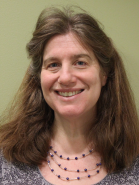非常抱歉,
你要访问的页面不存在,
非常抱歉,
你要访问的页面不存在,
非常抱歉,
你要访问的页面不存在,
验证码:

职称:ASSISTANT PROFESSOR
所属学校:Georgetown University
所属院系:Department of Biology
所属专业:Biology/Biological Sciences, General
联系方式: +1 202-687-5678
Leslie Ries is an ecologist who focuses on patterns at both medium and large scales. She has worked both in the fields of landscape ecology and biogeography with her focus mainly on butterflies. Over the last 10 years, she has shifted from a field approach to using large databases, mostly originating from citizen science monitoring networks. Citizen science greatly expands the scale at which we can collect data and thus explore problems and solutions that are increasingly global in nature. Ries focuses on several facets of citizen-science, including the use of these data to answer large-scale ecological questions, especially those related to climate and land cover; developing statistical tools to extract the most robust information from the data; designing systems to support data management, visualization, and sharing; and developing “knowledge” databases that compile life history and other trait data to enrich multi-species analyses. In addition to carrying out and enabling large-scale ecological research, Ries has also been working on methods to integrate big-data approaches into undergraduate education, and she is also increasingly interested in informal education opportunities as well. At Georgetown, she plans to expand her research to include lab work on the physiological limits to growth imposed by extreme temperatures. Combining lab and field research with large-scale distribution data could provide a powerful approach to exploring the impacts of changing land cover and climate at regional, continental and global scales.
Leslie Ries is an ecologist who focuses on patterns at both medium and large scales. She has worked both in the fields of landscape ecology and biogeography with her focus mainly on butterflies. Over the last 10 years, she has shifted from a field approach to using large databases, mostly originating from citizen science monitoring networks. Citizen science greatly expands the scale at which we can collect data and thus explore problems and solutions that are increasingly global in nature. Ries focuses on several facets of citizen-science, including the use of these data to answer large-scale ecological questions, especially those related to climate and land cover; developing statistical tools to extract the most robust information from the data; designing systems to support data management, visualization, and sharing; and developing “knowledge” databases that compile life history and other trait data to enrich multi-species analyses. In addition to carrying out and enabling large-scale ecological research, Ries has also been working on methods to integrate big-data approaches into undergraduate education, and she is also increasingly interested in informal education opportunities as well. At Georgetown, she plans to expand her research to include lab work on the physiological limits to growth imposed by extreme temperatures. Combining lab and field research with large-scale distribution data could provide a powerful approach to exploring the impacts of changing land cover and climate at regional, continental and global scales.